#urban sociology
Explore tagged Tumblr posts
Text
Embracing Armchair Urbanism: Understanding the Built Environment
In today’s rapidly urbanizing world, the study of urbanism has become increasingly relevant. As an armchair urbanist, I find myself captivated by the intricate dynamics between inhabitants and their built environment. This term refers to individuals who take a keen interest in urban areas, their design, and the way people interact with them. In this blog post, we will delve into the concept of…
#Argentina#armchair urbanist#Australia#Brazil#built environment#built-up area#Canada#Cities#conurbations#economic statistics#global urban population#human impact on the environment#Japan#metropolitan area#Mexico#rural areas#study#suburbs#towns#urban areas#urban planning#urban sociology#urbanism#urbanization#urbanization rate
0 notes
Note
what are your main criticisms of Times Square Red, Times Square Blue?
I think Delany's whole theory about how Times Square "Red" was a place of genuine cross-class social interaction and the like is wildly romanticized bullshit that downplays and softpeddles a lot of exploitation at work in the vice industries and the reality that pretty much everyone was there to get their fix or get paid and/or both, and then get the fuck out as quickly and safely as they could. There were reasons other than Puritanism that you kept your eyes on the sidewalk when you walked through the old Times Square.
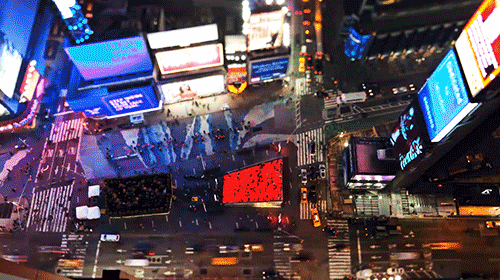
I also think as a narrative about gentrification it ignores a longer history of how the Times Square he remembers was a transitory period caused by deindustrialization and neighborhood decline from the 30s-50s; it's not what Times Square was before and it wasn't what it was after, and in a lot of ways the hyper-capitalist consumerist tourist fantasia which is where I work on a day-to-day basis is pretty similar to what it was back in the 1920s or earlier.
And this doesn't make Times Square "Blue" unique or that different than any other example of neighborhood succession - plenty of neighborhoods in NYC from the Meatpacking District to Chelsea and SoHo and Alphabet City to Williamsburg got their start as working-class neighborhoods on the decline that got Bohemianized because the rents were cheap and then got trendy and then gentrified, and that all happened without the desexualizing hand of the House of Mouse at work.
32 notes
·
View notes
Text
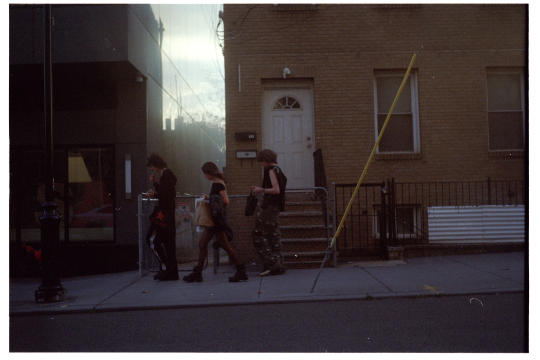

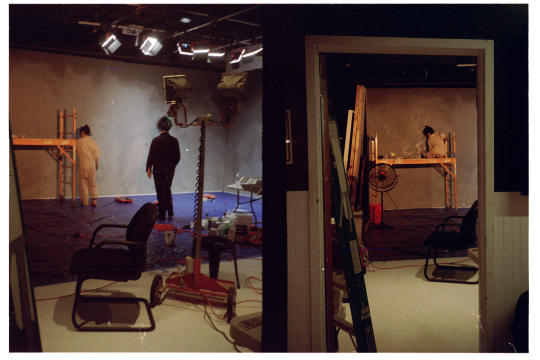
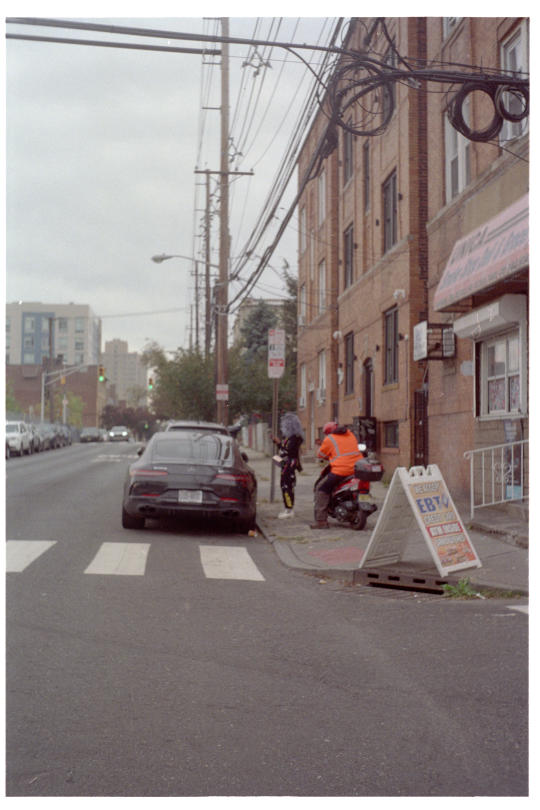
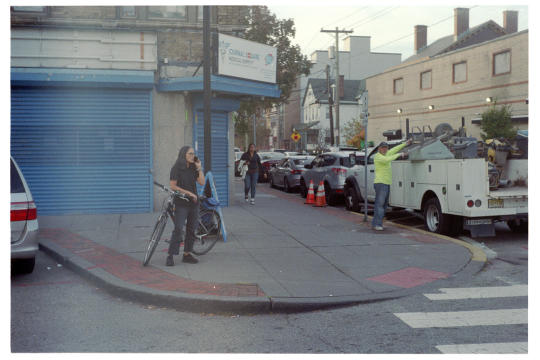
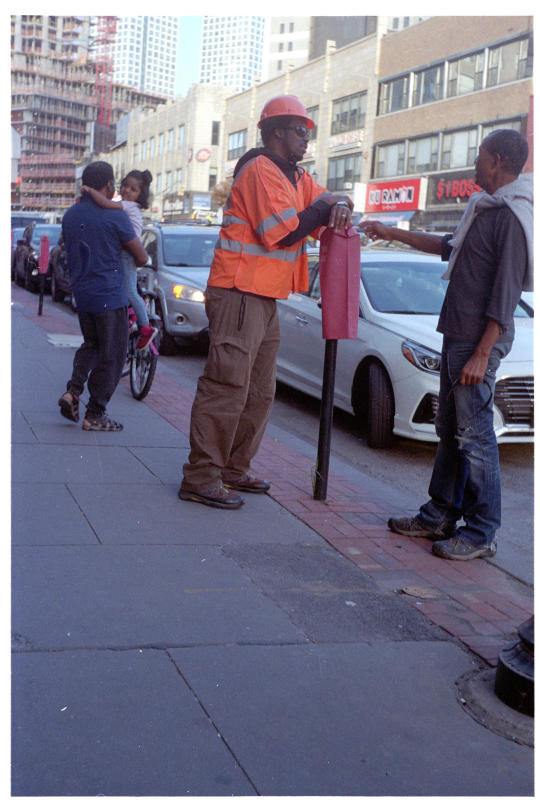
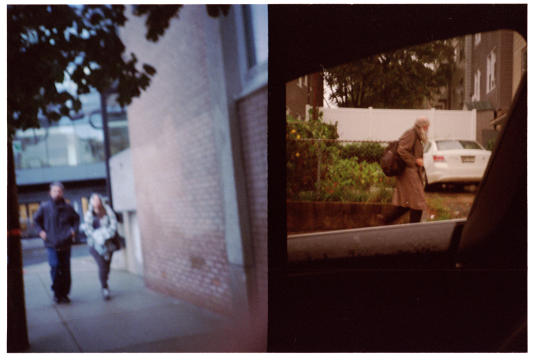
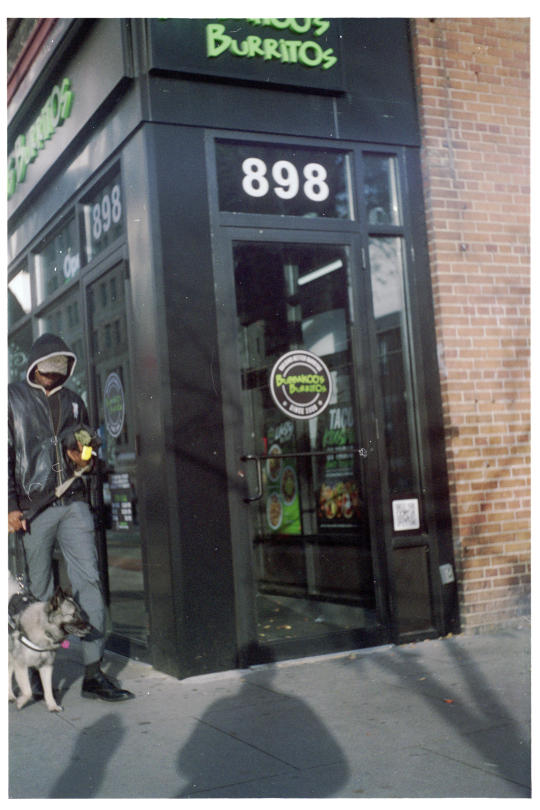
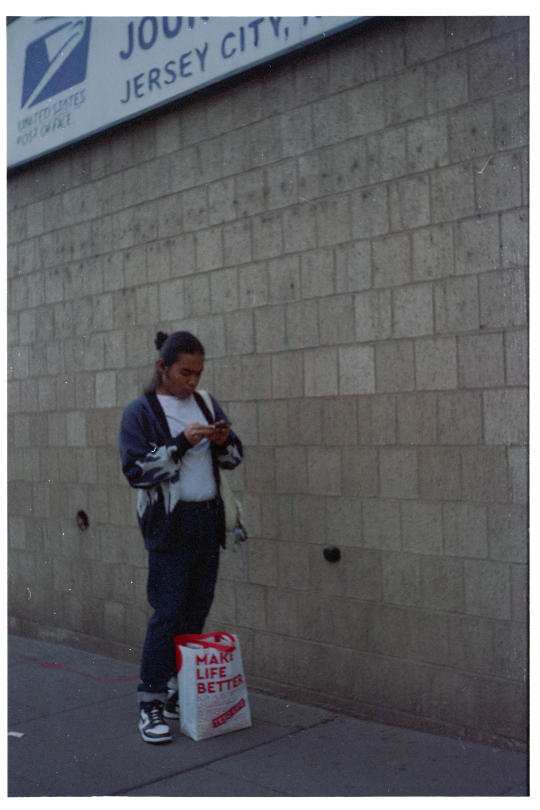
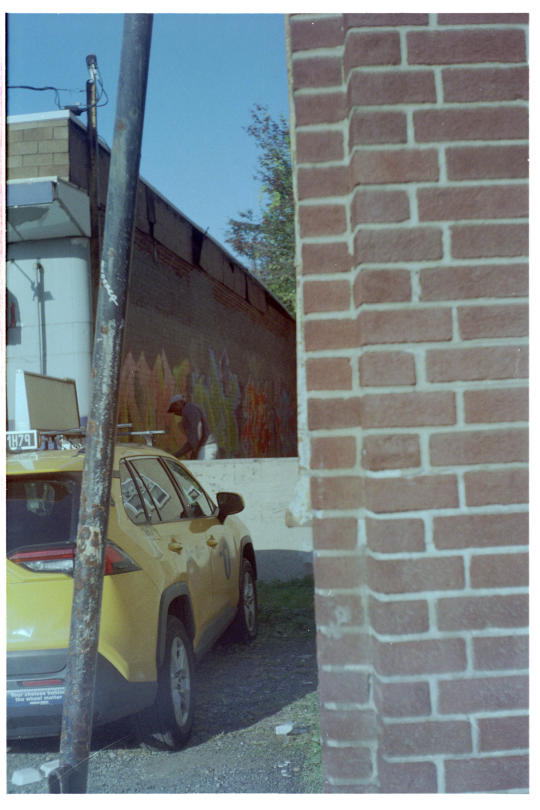
people, jc, nj - yashica MG-1, canon demi c & 400 iso color film - developed at eliz digital & scanned with minolta dimage dual iii
#35mm#people#jersey city#new jersey#grunge#soft grunge#graffiti#street photography#city photography#film photography#35mm photography#35mm color photography#city#street style#urban photography#city life#cityscape#painting#analog photography#sociology
44 notes
·
View notes
Text
i love my little brother to pieces. that’s my baby brother and im always endlessly proud of seeing him succeed in uni.
but jesus christ being the humanities eldest daughter with a stem younger son in an immigrant household is so fucking demeaning sometimes.
i dont mean to toot my own horn but when i got an entrance scholarship, earned scholarships in every year after that, added 2 publications to my cv in undergrad, 4 conference talks, taught my first class solo as a third year, earned a national recognition in sociology after graduation, ended my degree with highest honours and in the top 5% of the entire arts faculty, got into my MA program which is top in the country for sociology with an acceptance rate of ~10% (also making me the first in my family to go to grad school) i’ve gotten crickets from my parents.
no questions about my studies. no questions about my work. no congratulatory facebook posts. no proudly showing me off at family dinners. its like im some kind of shameful secret. meanwhile they absolutely adore my brother who’s in the stem field and share photos and videos constantly of what he’s doing in his clubs, congratulating him on test scores, are so happy to wear his school merchandise and talk about him at dinners…
its all just so fucking degrading and feels like a giant slap in the face every time i come home and get an “oh, that’s nice,” every time i get left on read in the family group chat, every time i need to crawl to their DMs and go “did you see what i sent in the family chat”.
#and all the more so when my area of study is entirely dedicated to my parents#context i study urban and community sociology and how city infrastructure can build tighter knit immigrant communities#which i specifically got interested in after watching my parents grow lonely in america#and watching how their faces light up when they visit me in college and i take them to our local immigrant neighbourhood#i put pictures of them in every talk i do too and tell their stories as my conference opener#it just sucks idk#studyblr#academia#gradblr#vent
7 notes
·
View notes
Text
2am thoughts but i think theres something to be said about how a large portion of “masculine woman” tropes are just working class/blue collar woman… realities? something something theres a smack of classism and patriarchy to how we just consider all working class shit “masculine” by default. idk someone smarter could reckon with this better. but i think about it a lot at work. or any time i see a “wow masc woman!!!!” post but shes not really masc by choice shes masc by career by nature of labor etc
#seas posts#i think the ways we separate ‘’masc’’ and ‘’fem’’ are for a very urban upper class perspective… it almost feels like a luxury#its interesting to see the line workers who like go above and beyond to still be overtly feminine too#even the carabiner is a blue collar-ism… theres a sociology thesis paper here
9 notes
·
View notes
Text

Three socioeconomic classes. Philippines
3 notes
·
View notes
Text
my dad reminding me he didn't find a stable career until age 50 reassured me a lot ngl
#he took up computer science in his late 30s#after doing a phd in sociology and studies in engineering and urbanism#meanwhile my mom went ready to work at age 22 lmao
4 notes
·
View notes
Text
Choosing a topic for my PHIL Practical Reasoning class and they're using a pre-made NYT topic list. I was enjoying the rich variety of interesting and frequently controversial topics when I saw the following:

I bluescreeened for a moment ...Did anyone ever actually think swear words are shocking???
Then I remembered NYT is based in New York and mostly has a middle/upper-class distribution. My family is from a series of very rural and very poor *Northern WI logging and fishing towns*...yeah you could say the culture is a bit different.
#hal rambles#usa culture#class divide#rural#urban#i feel like swearing is one of the most frequently talked about differences#but it's just so interesting from like a linguistics and sociology perspective#culture shock in my own nation#it is funny because I get to see a lot of the differences#since poor rural Northern WI and rich urban New England are pretty much as diametrically opposed as you can find in the US
6 notes
·
View notes
Note
Hello! Re: your post about your class - is it legit a fanfiction class? I gotta know more, bc it sounds fascinating? (/gen)
technically it isn’t a “fanfiction” class but a fan studies class; fanfic was basically just week 3
#highly recommend if you’re a media/sociology studies person#it’s a relatively recent field so it feels more accessible to me than like. urban studies. which has a lot more history to the field#and encompasses more#you can do a lot w fan studies but it’s still a subsection of cultural studies#but also i’ve been in the class a month#am not an expert
2 notes
·
View notes
Text
"I'm from the suburbs."
The concept of 'suburbia' is a new one for me.
As someone raised in Jamaica, you either lived in one of the major cities like Kingston or Montego Bay, or you didn't. Anything outside of these urban centers was commonly referred to as 'country'; you can think of it like a stark urban-rural divide that often defines the Jamaican landscape. These cities, though, are not like American cities. Most residents live in homes or townhomes and the people primarily use public transportation or vehicles to get to places.

Half-Way-Tree in Kingston, Jamaica
It was only when I came to the United States that I discovered the relevance of suburbia. I remember when I first heard it come up in conversation during my freshman year at Penn: "I'm from the suburbs." It was a simple statement, casually dropped into a discussion about hometowns and backgrounds. To many of my American peers, this phrase seemed to carry a certain significance and conveyed more than just a geographical location. It was as if they were sharing a fundamental aspect of their identity, and I couldn't help but be curious about what it meant.
As I delved deeper into these conversations, I realized that "the suburbs" here referred to a distinct way of life, often characterized by well-planned residential neighborhoods, spacious lawns, and a quieter, family-oriented atmosphere compared to the bustling city centers. People who mentioned they were from the suburbs often described their childhoods in terms of tree-lined streets, lawns, cul-de-sacs, and country clubs.
I quickly realized suburbia was not just a geographical location; it was a lifestyle, a set of experiences, a cultural identity, and most importantly, an ideal. In chapter 16 of Crabgrass Frontier, Jackson underscores this ideal: “But the national cultural preference for privacy, for the detached home on its own plot, will not easily be eroded.” His assertion that this preference "will not easily be eroded" is still relevant today, as we can see, from the statement I heard, that the allure of the suburban lifestyle continues.
5 notes
·
View notes
Text
I’m having a “ i connected two dots/ you didn’t connected shit” moment in my academical writing XD XD
#i'm writing a thesis of urban sociology#about hostile architecture#a topic that is relatively new in latin american academia#so i have to come up with tons of things by myself
2 notes
·
View notes
Text

if you see me hanging out with others and laughing hysterically. it was me.
if you see me the other day walking alone with earphones tucked on, that's me too.
If your heard me refused an outing or night out to read a book and binge watch all night, that's me too.
It's not that I dislike you or something ,I just don't subscribe to others definition of fun.
And that's actually and proud me, too.
2 notes
·
View notes
Note
"There were reasons other than Puritanism that you kept your eyes on the sidewalk when you walked through the old Times Square." Can you explain what you mean here? Not sure if it's a New York idiom I'm not understanding but like... what was going on in Times Square, why was it dangerous, and how would staring at the sidewalk be a useful defense?
"Keeping your eyes on the sidewalk" is a synecdoche for the urban survival method of not making eye contact, not stopping to talk to anyone, walking as fast as you can, and staying in well-lit, well-travelled areas as much as possible.

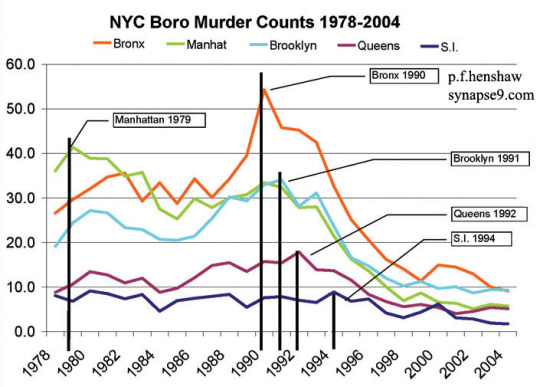
As to what was going on: New York City as a whole between the mid-60s and the early 90s had a much higher crime rate and violent crime rate than it had before or now; Manhattan was not an exception to this rule, although there was a lot of variability within the borough; and Times Square had a particularly high crime rate within Manhattan because it was a declining neighborhood that had lower foot traffic, underpolicing (because the NYPD didn't deem it an area worth devoting resources to because it was declining and a lot of the crime was directed at poor people of color, particularly women and LBGT+ poor people of color), and a concentration of the drug trade.
To be fair to Delany, I think he has a point in that a lot of what gave the Times Square of the 70s and 80s a bad name - porn theaters, sex stores, sex hotels, homeless people, most drug users, various cults proselytizing on the street - was not actually dangerous and a lot of that bad name did have to do with aesthetic unpleasantness. And I think he also has a point that, for the sex workers who got pushed out of the hotels and bars and clubs and onto 11th Avenue, things did not get safer when Times Square was "cleaned up."
Even with those caveats, I still think that he's wrong about the old Times Square, because those same people who were relatively safer indoors (if/when they were allowed indoors) still were exposed to a lot of danger on their way in and out.
23 notes
·
View notes
Text
Kowloon Walled City is well worth an Internet deep dive. There are some good documentaries available on YouTube.
It was certainly no libertarian utopia, but it wasn’t a dystopia either, and that’s heartening.




Kowloon City: An Illustrated Guide,
At its height in the 1990s, Kowloon Walled City in Hong Kong housed about 50,000 people. Its population is unremarkable for small cities, but what set Kowloon apart from others of its size was its density. Spanning only 2.6 hectares, the tiny enclave contained 1,255,000 people per square kilometer, making it the densest city in the world.
Kowloon was built as a small military fort around the turn of the 20th century. When the Chinese and English governments abandoned it after World War II, the area attracted refugees and people in search of affordable housing. With no single architect, the urban center continued to grow as people stacked buildings on top of one another and tucked new structures in between existing ones to accommodate the growing population without expanding beyond the original fort’s border.
With only a small pocket of community space at the center, Kowloon quickly morphed into a labyrinth of shops, services, and apartments connected by narrow stairs and passageways through the buildings. Rather than navigate the city through alleys and streets, residents traversed the structures using slim corridors that always seemed to morph, an experience that caused many to refer to Kowloon as “a living organism.”
The city devolved into a slum with crime and poor living conditions and was razed in 1994. Before demolition, though, a team of Japanese researchers meticulously documented the architectural marvel, which had become a sort of cyberpunk icon that even inspired a gritty arcade as tribute.
Courtesy: Hitomi Terasawa
2K notes
·
View notes
Text

Rich and Poor. Bombay, India
4 notes
·
View notes
Text
anyways. geography is no longer fun and interesting to learn. get me out of here
#the first unit was interesting bc it was all facts#this unit is all abt like theories and sociology which is not my jam#this chapter in particular is abt urban sociologists and their theories and like#i dont want to take notes abt this.......#michi tag
0 notes